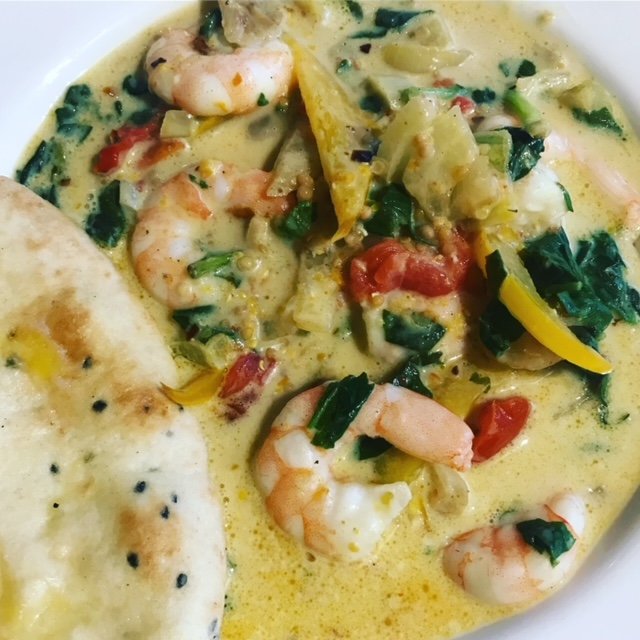The Parent Trap: On not studying art history and not growing vegetables
During maternity leave, I was going to study art history and grow my own vegetables.
During his two week paternity leave, my husband was going to decorate the nursery and replace the decking.
In the event, during that year I ate anything I could extract from a box and put straight into my face (thank you quiche) and read one short book, in increments of up to three sentences. The nursery remained undecorated for six months. The decking rotted busily until we moved out.
What I learned during that first year of my daughter’s life was that high expectations – of myself, of experiences, of my child, of my ability to make it into town to visit the aquarium – were not my friends. The ambitions I had for our first family Christmas were Dickensian, featuring carol-singing, bracing walks and relaxed family feasts at which my daughter would beam from her highchair. In these fantasies, I was eating hot food. With two hands. My husband and I spent that first festive season sleeping in shifts, shuffling past each other on the stairs and sustaining ourselves on foraged leftovers (pro tip: cocktail sausage and brie is the sandwich of kings.)
When I was a parent, my house would not be full of music-emitting plastic horrors. My children would play with one toy at a time and then put it away.
The imprint of a Lego brick is still etched into the arch of my left foot. You could look at every photograph of my daughter playing in our old flat without getting the merest hint of what colour the carpet was, such was the tsunami of toys in which she bobbed. In unguarded moments, although my youngest child is seven, I regularly find myself scrolling through the various trippy exclamations the long gone pink plastic walker made (“The flowers spin in the sun!” What does it even mean?)
I couldn’t imagine my children would throw tantrums but, should it happen, I was confident that I could offer reasoned reassurance to head off the crisis.
Things my daughters have melted down about in public include (but are not limited to): the suggestion they might like to wear a coat. The confiscation from under the pillow of a shard of glass referred to as a ‘bed emerald’. A plate being blue. My husband and I not walking in adequately neat single file. Being denied the ‘juice’ (urine sample) she had spotted in my bag. The offer to peel a tangerine. Being told not to lick the supermarket freezers. A dog leaving.
When I had kids, my family would enjoy lively conversation over delicious meals, just like people in films about Italy. These would not be characterised by horrified complaints about the food, by diners springing up to chase the cat, by vicious kicking wars or by the need to give the room a full deep clean in the aftermath.
Recently I realised – to my horror – that a friend had thought the evening meals I posted on Instagram (cauliflower curry, artichoke pasta, fennel bake) had been enjoyed by my children. During the week my children’s diet consists of a cheese sandwich for one and a boiled egg for the other. They have a hot meal at school and I refuse to do nightly battle with the fact that they have strictly divided all foodstuffs between them to ensure that there are no universally liked meals. Even meals they visibly enjoyed only days ago can be greeted with howls of horror. I had to apologise for having inadvertently given the impression that I was winning at dinner.
By posting pictures of meals, just because I am not a particularly proficient cook and had produced something that looked nice, I had unwittingly become that enemy of tranquility: The Comparison. They’re the person against whom you measure your own life – your career progress, the cleanliness of your kitchen, the happiness of your children. We all peer through heavily filtered windows and see these people. They’re jogging on the beach, or giving their children a piggyback without pulling a muscle, or laughing (attractively, mind) while quaffing prosecco with friends. Their offspring consume lentil gratin without a murmur and have never picked their noses and wiped it on the wall. Their relationships are deep and healthy and their school runs serene, before they head off to their high-powered but socially conscious jobs.
The dawning realisation that I had – however accidentally – been The Comparison to someone else was odd. I clarified that my children wedge beige food into themselves in front of the telly most days, just in case anyone else had been fooled. But it was a great reminder that although reality rarely matches up to our aspirations or the way we think others are living, that’s fine. If asked for parenting advice – and I am patently unqualified to offer any – I’d plump for: low expectations are your friends.
That first Christmas? It was magical. Despite the baby sick in my hair and the fog of fatigue. That time I was discovered scraping toddler poo off the library floor with a shopping bag? It’s a hilarious story now, and they were wise not to have invested in carpet. The mealtimes during which at least one person is sulking under the table, and half the table consent to eat only half the meal? How I’ll miss them when the miscreants are grown and gone, and eating whatever they please (cauliflower curry?) at other tables.
When I retire, I’m going to study art history and grow vegetables.
Ana Sampson is the editor of poetry anthologies including Night Feeds and Morning Songs: Honest, Fierce and Beautiful Poems about Motherhood (Trapeze).



